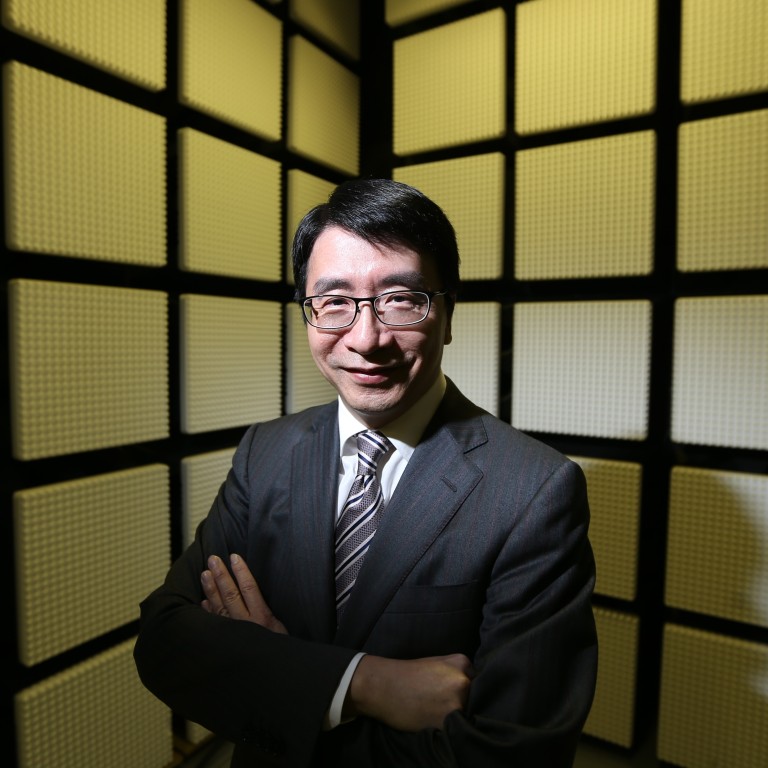
Hong Kong economic agency rebuked for massaging figures to meet targets vows to improve transparency
- Hong Kong Productivity Council criticised for double-counting projects to meet performance targets
- Government-funded agency's leaders grilled by lawmakers over critical report from watchdog
A government-funded agency tasked with boosting productivity in Hong Kong has pledged to open itself up to greater scrutiny after it was accused of manipulating figures to hide its failings.
The Hong Kong Productivity Council came under fire in November last year after an Audit Commission report showed it had reclassified and double-counted some of its work to meet performance targets.
The report found the council would incorporate projects already accounted for under its research and design arm into its consultancy figures, on the grounds they involved an element of consultancy work.
For four consecutive years up to 2017-18, the council failed to achieve its consultancy targets even though the number of such assignments it was expected to complete was reduced annually, dropping at one point by as much as 14.4 per cent.
Agency tasked with boosting productivity fails to meet its own targets for four years
The council’s tactic of double-counting worked and it exceeded its target for consultancy projects in 2018 by 1 per cent.
Without the classification ploy, the commission concluded, the council would have failed to meet the benchmark.
The auditor also said there was no evidence showing the 23-member governing committee of the council or the Innovation and Technology Commission (ITC), a government arm which spearheads innovative development, had been told of the reclassification.
Earlier, the council’s executive director Mohammed Butt told a hearing in the legislature that changing the recording methods was to reflect an increasingly diversified market, which required services to be cross-disciplined.
On Tuesday, lawmakers grilled the agency’s top brass again about another of the auditor’s findings, that the council had double-counted some work between 2014 and 2018 in its key indicators, meant to document its financial performance, service delivery, effectiveness and operational efficiency.
Facing a grilling from lawmakers on Tuesday, Dr Lawrence Cheung Chi-chong, the council’s chief innovation officer, said he agreed with criticisms and vowed to be more transparent.
“Since there are different angles to classify [projects], there are chances they may overlap,” he said.

While the methodology of recording has not changed, Cheung added, he and his colleagues had since disclosed the projects in question to its governing council in November, as well as the ITC.
The audit report also urged the council to better document earnings generated under its patents, licences or royalties fees. The three types of revenue currently fall under the same umbrella.
Pro-democracy legislator Kenneth Leung, who vice-chaired the legislature’s public accounts committee, demanded a follow-up response on Tuesday.
Cheung said the council agreed with the suggestion the three categories should be separated, and was currently in talks with the ITC.
Top German R&D institutes pick city for first overseas venture
Apart from the confusing recording scheme, the Audit Commission identified in its report last year various weaknesses of the council, including poor corporate governance and what it said was an outdated role in the market.
Cheung said bosses had since consolidated the Hong Kong Productivity Council’s academy, its education arm which had been running at a loss.
While he did not provide a figure regarding the extent of those losses, the academy’s revenue dropped from HK$12 million (US$1.5 million) in 2014/15 to last year’s HK$7.6 million.
He said a new head of staff with considerable experience in the market had been appointed to oversee courses and was speaking to industry leaders and stakeholders. Meanwhile, a new online registration system has been made available.
Previously, records regarding the number of registered students for some classes were omitted because some courses were not handled by the academy, but by other departments.
China to deploy harsh penalties and AI to cut data fraud
Cheung said administrative duties had since been centralised, with the academy handling clerical work to avoid incomplete records.
Legislator Leung grilled the council over an occasion when it was forced to refund a HK$400,000 deposit to a client after it had invested time and effort but had failed to deliver a HK$1.05 million project.
Edmond Lai Shiao-bun, the council’s chief digital officer, said the incident had exposed the problem of vague contracts used by the council, which failed to offer protection when the agency was engaged in disputes with clients.
“This case taught us a lesson,” Lai said, adding the terms and conditions in their contracts had since been improved.

